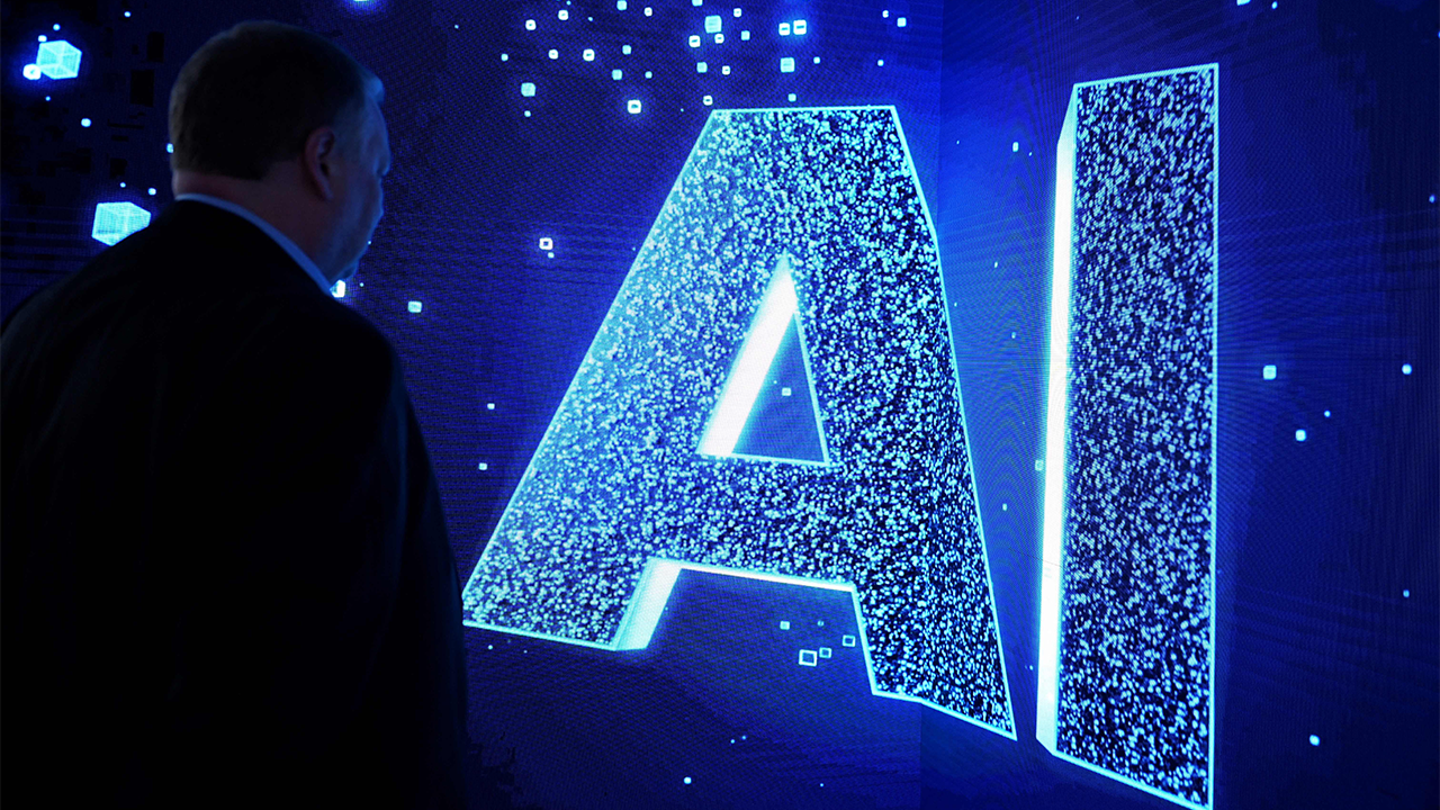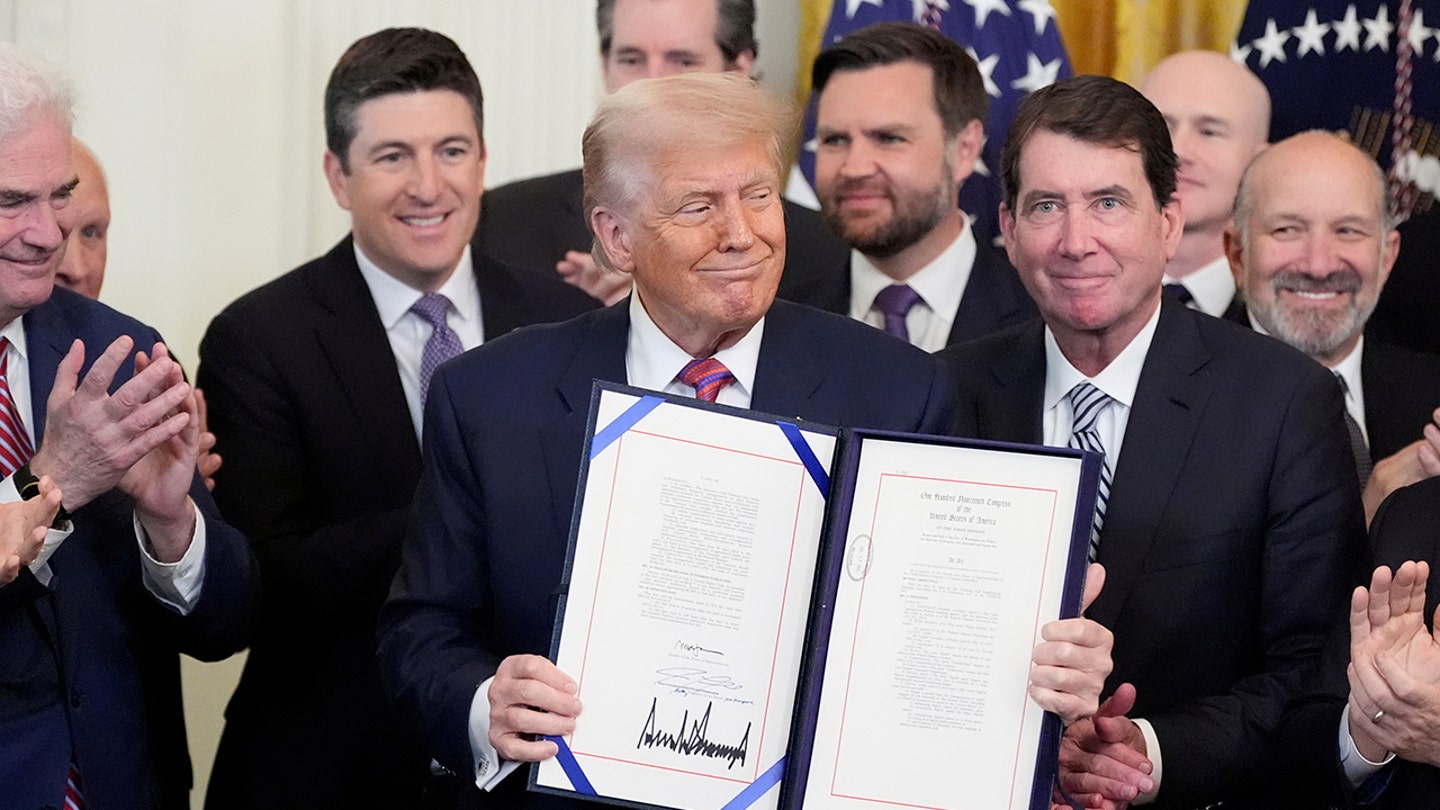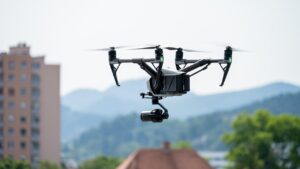NEWYou now have the option to listen to articles from Fox News!
Ahead of President Donald Trump’s upcoming speech, the Trump administration has disclosed details of its long-awaited artificial intelligence plan. The speech is expected to involve the signing of at least one executive order related to the U.S.’s artificial intelligence race.
Key figures in the administration, including Michael Kratsios from the White House Office of Science and Technology Policy and David Sacks, the AI and crypto czar, held a background call with the media. During the call, they outlined a three-pillar plan of action for artificial intelligence, focusing on American workers, free speech, and protecting U.S.-developed technologies.
“We want to prioritize America’s workers and ensure they benefit from AI,” Sacks stated during the call, outlining the three pillars.
“The second pillar emphasizes the importance of AI systems being free from ideological bias and not designed to promote socially engineered agendas,” Sacks added. “We have several proposals to ensure that AI remains truthful and reliable. The third principle, which spans across all pillars, is the need to safeguard advanced technologies from misuse or theft by malicious actors, while also monitoring for potential risks from AI.”
President Donald Trump is set to deliver a significant speech on artificial intelligence on July 23, 2025. (Alex Brandon/The Associated Press)
Trump is expected to deliver a major address outlining his administration’s artificial intelligence efforts, including lifting restrictions on the technology to spur what officials believe will be the next “industrial revolution.”
In January, Trump directed his administration to create a plan of action for artificial intelligence to solidify the U.S.’s position as a global leader in AI and secure a better future for all Americans.
The administration was tasked with developing a plan within 180 days to enhance America’s global AI dominance, with a focus on promoting human flourishing, economic competitiveness, and national security, which was due on Tuesday.
Kratsios emphasized during the call that by reducing federal regulations surrounding AI, American workers will benefit and the U.S. can avoid following the same path as Europe, which is bogged down by tech regulations. “The action plan aims to liberate American AI innovation from unnecessary bureaucratic hurdles, ensuring that all Americans can enjoy the benefits of AI technologies and leveraging AI to drive new scientific advancements.”
“Regarding deregulation, we cannot risk mirroring Europe’s innovation-stifling regulatory approach. Federal agencies will review existing rules and eliminate those that hinder AI development and deployment across various industries, from finance and agriculture to healthcare and transportation.”

The Trump administration has consistently highlighted the role of AI in propelling America into the next “industrial revolution.” (Josep Lago/AFP via Getty Images)
“Additionally, we are asking the private sector to identify regulatory barriers they face for the administration to consider removing,” he added. “Instead of fostering skepticism, our policy is to promote and facilitate AI adoption across government and the private sector through regulatory sandboxes and sector-specific partnerships.”
Hours after taking office in January, Trump revoked a Biden-era executive order that imposed restrictions on artificial intelligence technologies, including requiring tech companies to inform the government of their most powerful technologies before making them public.
Trump’s move rescinded the Biden order, with a White House fact sheet arguing that the Biden executive order “hampers AI innovation and imposes burdensome and unnecessary government oversight over AI development.”
“American development of AI systems must be devoid of ideological bias or engineered social agendas,” the White House stated. “With the right government policies, the United States can solidify its position as the leader in AI and ensure a brighter future for all Americans.”
“The order mandates the creation of an AI Action Plan to maintain and enhance America’s AI dominance, led by the Assistant to the President for Science & Technology, the White House AI & Crypto Czar, and the National Security Advisor,” the White House added.

Michael Kratsios, director of the White House Science and Technology Office, spoke to the media ahead of Trump’s AI speech on July 23, 2025. (Michael Brochstein/SOPA Images/LightRocket via Getty Images)
It was learned that Trump is set to sign an executive order on Wednesday related to implementing the administration’s artificial intelligence plan. The morning call focused specifically on the artificial intelligence plan that was developed over the past 180 days.
The Trump administration has achieved significant victories in the artificial intelligence race, where the U.S. competes with China to develop cutting-edge AI systems. Oracle and OpenAI recently announced the expansion of the Stargate project, which aims to establish large data centers in the U.S. This expansion is projected to create over 100,000 jobs in operations, construction, and related roles such as manufacturing and local services.
The Stargate project involves a $500 billion investment in U.S.-based artificial intelligence infrastructure over the next four years by OpenAI, Oracle, SoftBank, and MGX.

President Donald Trump is expected to sign executive orders focused on artificial intelligence on July 23, 2025. (Alex Brandon/The Associated Press )
Establishing data centers is crucial to the U.S.’s artificial intelligence efforts, according to administration officials who spoke during the background call. Sacks highlighted the administration’s goal of significantly expanding U.S. artificial intelligence infrastructure to lead in data centers and the energy that powers them.
Earlier in July, Trump visited Pittsburgh for an artificial intelligence summit at Carnegie Mellon University, showcasing the $90 billion in private-sector investments aimed at transforming Pennsylvania into an energy and artificial intelligence hub for the nation
Trump has also signed executive orders focusing on artificial intelligence to enhance America’s energy grid capacity, as well as an April executive order aimed at preparing the next generation for careers in artificial intelligence through educational programs.
During the call, Kratsios emphasized that the U.S. winning the artificial intelligence race is essential, citing economic and geopolitical factors.
“We are not the only ones who recognize the economic, geopolitical, and national security significance of AI. Winning the AI race is imperative,” he stated. “The plan includes more than 90 federal policy actions across three pillars. As David (Sacks) mentioned, these pillars are accelerating innovation, building American AI infrastructure, and leading international AI diplomacy and security. The action plan was developed with extensive input from industry, academia, and civil society, based on over 10,000 responses to the White House’s request for information.”
As per the background call, the plan presented to Trump could be implemented within the next six months to a year.
The Trump administration has consistently emphasized the pivotal role of artificial intelligence in propelling America into the next “industrial revolution,” which officials believe will lead to job creation and a robust tech industry that can outperform other nations in the race.
Vice President JD Vance has been a vocal advocate for the administration’s efforts to cut red tape surrounding artificial intelligence, emphasizing the U.S.’s strength in the field.
“The Trump administration is concerned about reports suggesting that some foreign governments are considering tightening restrictions on U.S. tech companies with global operations,” Vance stated in a passionate speech from Paris in February. “America cannot and will not stand for that, as we believe it would be a grave mistake.”
CLICK HERE TO GET THE FOX NEWS APP
“We are on the brink of a new industrial revolution… But it will not happen if excessive regulation discourages innovators from taking the necessary risks to advance. Nor will it happen if AI is dominated by large entities seeking to censor or control users’ thoughts.”





